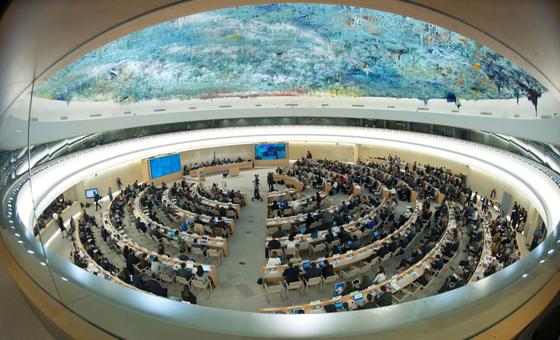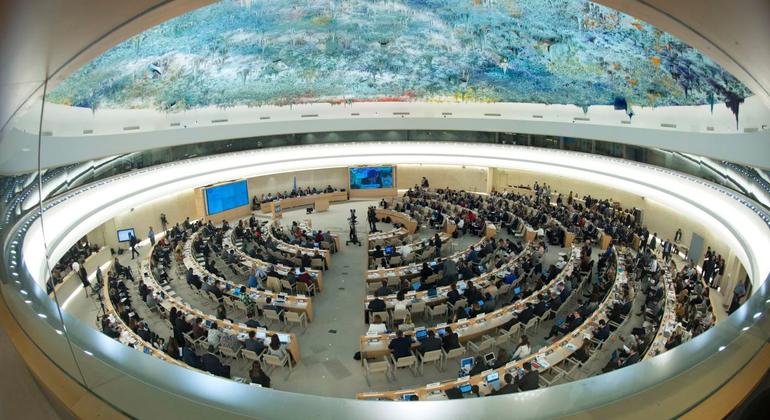
The UN Human Rights Council also “strongly urged” Russian authorities to comply with all the State’s obligations under international human rights law.
It also called for upholding fundamental freedoms, including those of thought, opinion and expression, and peaceful assembly, “in particular by removing restrictions on diversity in ideas, criticism and dissent as well as associated rights to liberty and security of person, fair trial, and freedom from torture.”
The Special Rapporteur investigative role examining human rights inside Russia was agreed for the first time only last year, in the wake of Russia’s invasion of Ukraine.
The vote came after Russia’s bid to rejoin the Council was rejected by the UN General Assembly on Tuesday.
The decision on the extension was made in a resolution that was backed by 18 Council members and opposed by seven (Bolivia, China, Cuba, Eritrea, Kazakhstan, Kyrgyzstan, and Viet Nam). Twenty-two members abstained.
Call for ‘full engagement’
Through the resolution, the Human Rights Council also called on Russia to “establish full and non-selective engagement” with all UN human rights mechanisms, constructive communication and full cooperation with the mandate of the Special Rapporteur.
It also called for unhindered access to the mandate holder to visit the country and to meet freely with relevant stakeholders, including civil society and human rights defenders, as well as individuals in detention.
The Council further urged Russian authorities “to refrain from all forms of intimidation and reprisals against persons and associations for their cooperation with these bodies.”
Mandate of the Special Rapporteur
The mandate of Special Rapporteur on the situation of human rights in Russia was established by the Council in October 2022. The rapporteur is tasked with monitoring, assessing and reporting on the rights situation in the country.
Last month the independent expert issued a report noting a “significant deterioration” in human rights across in Russia since it invasion of Ukraine in February last year, and described a “systematic crackdown” on civil society.
The current mandate holder – appointed by the Council to serve in an individual capacity, independent of any country or the UN Secretariat – is Mariana Katzarova of Bulgaria. She was appointed on 4 April and assumed her functions on 1 May.
Ms. Katzarova is not a UN staff member and does not draw a salary from the Organization.



